QuestionQUESTION: Hi I have just inherited a firebellied newt off a woman who said it hasn't been eating and she has tried everything. She also took him to New Zealand and he said that apparently sometimes newts just won't eat and he should be put down. I have tried frozen bloodworms and live whiteworms and he hasn't even attempted to eat it! Do you have any advice as I don't want to put him down. He's a baby I think roughly about 6 months.
ANSWER: The person who told you that some "just don't eat and need to be put down", is probably someone who should not be keeping any more herptiles. She seems to have a knee jerk answer to kill an animal because she can't figure out what SHE is doing wrong.
I'm more of reptile expert than amphibian expert, but they are not that far off in many respects. This woman's position is silly. The newts natural default position in wild would be to eat, so more than likely the problem really is that someone is doing something wrong. Newts are considered a pretty easy and hardy in captivity.
For one thing, it doesn't sound like you have used a very wide variety of food. You only listed two. You are going to have to be a little more resourceful and buy different food items if you want to save this animal. More varieties of live food would probably be the best place to start. Checking your temps, and giving the animal a little space so that you don't stress it would probably be the next step. Have you read a caresheet? Been on a Fire Bellied Newt forum yet?
You need to check your temps, lighting, and other habitat conditions with someone skilled with keeping newts. If the animal appears weak, unresponsive, or under weight; then you need to take it to a vet for diagnosis right away, instead of trying to treat an animal that you have no experience with. If it is weak, ill, or under weight and starving to death, then it doesn't have time to wait while you learn.
http://www.anapsid.org/mainamphibians.html
---------- FOLLOW-UP ----------
QUESTION: Thank you. I must not have explained myself clear in my question. It was the vet who said that there was nothing they could do and it needs to be put down. I do know a far bit about newts and have all the environmental conditions perfect for this newt. The foods i've tried include whiteworms, earth worms, wingless fruit flies, waxmouth larva and a few dry foods including wardleys turtle pellets and frozen bloods worms and he hasn't taken to any. He doesn't appear to be under weight but you must understand in New Zealand we do not have a lot of vets that specialize in reptiles/amphibians, there is two and the woman before went to both and both gave the same diagnosis that there is nothing they can do!!!
AnswerAh, it just sounds to me as if these vets are just not resourceful enough or don't care. I could come up with other possibilities they should address. I am an amateur herpetologist, but like I said; I am mainly a reptile guy and my experience with amphibians is limited. I will tell you what I know of treating reptiles however, as many of these complications and treatments are likely quite similar for amphibians.
I don't know how prone newts are to parasites, but a gastric parasite, or some kind of infection would be my next thing to address if the environment is properly setup and you have tried different types of live food that should get a newt's interest.
Perhaps a dose of fenbendazole if parasites are possible, or a treatment course of appropriate antibiotic if infection is suspected.
Impaction would be another possibility. An x-ray exam would reveal any gastric obstructions such as pebbles, etc. If an impaction is suspected then a small dose of mineral oil or saline laxative could help.
A fecal exam would be helpful too if this animal could produce a sample. This could be examined under magnification for evidence of parasites, or cultured for pathogens.
Another way to get a sample to test for pathogens is by blood, though a small animal may not have the blood volume to spare to do much testing.
A stomatitis or mouthrot infection is the common cause in many cases in which a reptile refuses to eat. Systemic antibiotics are called for here before the infection spreads to the lungs or gastro-intestinal tract.
Being an amphibian, I might suspect a fungal infection as a possibility as well.
Some common symptoms of illness in reptiles are: lethargy, unresponsiveness, sitting for extended periods with eyes closed, refusal to eat, mouth agape breathing, elevated upper body posture, visible labored breathing, regurgitation, etc....Many of these symptoms are common indicators of illness in all animals.
In many reptiles, force feeding during periods of illness or stress may be necessary to get them through rough periods. I caution against using whole prey in an animal that is ill and weak however, as it may cause them to go into shock after having something introduced they do not have the strength to digest. In this situation force feeding of liquid diets high in nutrition, through feeding tube, is more appropriate. Use of probiotics such as Bene-Bac is often helpful in some cases, particularly after antibiotic treatment. Many people also use a temporary glucose supplements to boost appetite and activity, known here as "Nutri-Cal" or "Jump Start".
If the animal is still strong and active though, their common whole prey could be force fed to them. Many times a reptile may begin self feeding after being force fed a few times. Force feeding and doing much in the way of invasive treatment or extended handling without injury would be pretty tricky with an amphibian, but trying some of these medications and procedures would certainly sound preferable to ending its life in my opinion.
I think there are still many things that could be tried before ending it's life. I'm not a big fan of that unless the animal has significant
trauma and is in pain, or is extremely emaciated and unresponsive and not likely to recover. There is no reason to kill it so long as it is otherwise responsive, not in great visible distress, and there is still SOMETHING that can be tried. You will need another trip to the vet for this animal however in order to see this through and try to save it. Even a common domestic animal vet can do some internet research or do a phone consultation with a known exotic animal vet.

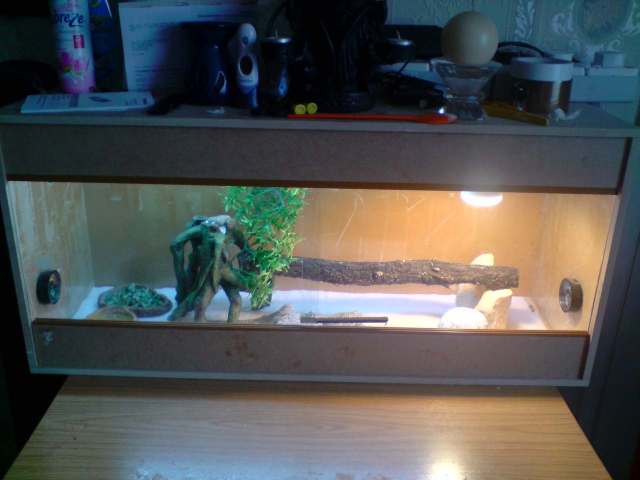 10wk beardie
QuestionQUESTION: hi diane,
here are the other links of
10wk beardie
QuestionQUESTION: hi diane,
here are the other links of
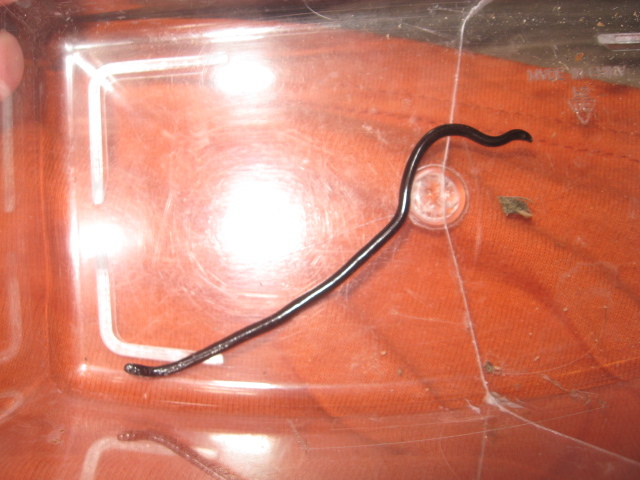 Small Black Snake/Worm
Question
Snake/Worm
Hello, my sisters were in the backy
Small Black Snake/Worm
Question
Snake/Worm
Hello, my sisters were in the backy
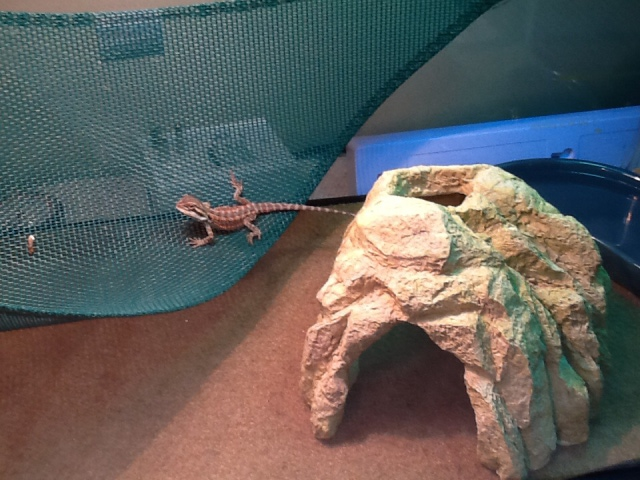 Getting my baby beardie to eat
Question
Bogie
Ive had an 8 week old baby beardi
Getting my baby beardie to eat
Question
Bogie
Ive had an 8 week old baby beardi
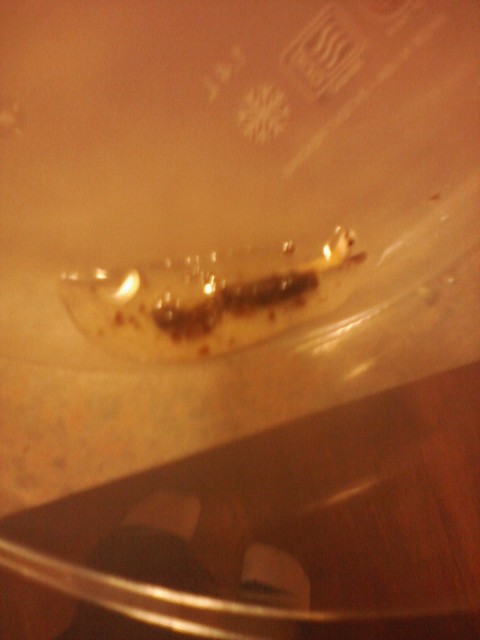 Leopard Gecko Diarrhea Picture
Question
Bellas diarrhea
When I take bell out to
Leopard Gecko Diarrhea Picture
Question
Bellas diarrhea
When I take bell out to
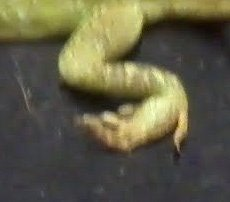 Water dragon toes
Question
kirk
Hello,
My water dragon is
Water dragon toes
Question
kirk
Hello,
My water dragon is